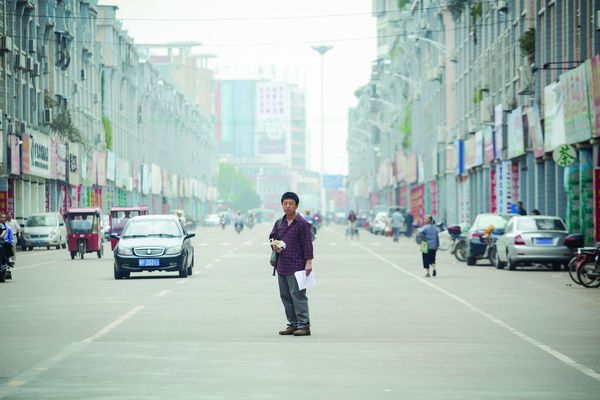Eye For Film >> Movies >> Dearest (2014) Film Review
Dearest
Reviewed by: Jennie Kermode

Around 500 children are kidnapped in the UK each year. In China, which has 21 times as many people, the figure is 70,000, and a much smaller proportion are recovered. In the UK, the biggest threat is from parents who have been denied custody. In China, it's from organised trafficking gangs. But the worst of it, almost every affected parent says, is simply not knowing what happened.
Meet Pengpeng. He's a toddler, full of energy and excitement about the world. His parents, Tian (Bo Huang) and Lu (Lei Hao) are divorced - Lu remarried - but have a relatively amicable access agreement and both remain important in his life. Tian runs a stall in a busy market full of people coming and going, their lives intertwined like the tangle of cables overhead, and Pengpeng joins him there. But one day, when a fight break out nearby, he sends his son outside in the care of an older child whilst he deals with the matter, and Pengpeng doesn't come back.

This part of the film sticks closely to formula but that doesn't deprive it of emotional impact. A flood of urban images establishes both the character of the city (Shenzhen) and the chaotic nature of the search, and it will have you straining to catch a glimpse of Pengpeng's bright yellow jacket as if it were the iconic red raincoat in Don't Look Now. That yellow persistently appears throughout what follows, gathering increasing symbolic weight. Tian joins a support group full of other bereft parents. He fends off callers who variously try to con him by claiming they have his child. With the increasing assistance of his ex-wife, who was initially overwhelmed by depression, he does his best to undertake a national search.
It's just when the story seems to have reached its natural denoument that the film changes direction and delivers something equally powerful but distinctly more unusual. Following a complex chain of events related to Pengpeng's disappearance, it centres on a devastating performance by Wei Zhao and explores the layers of deception and prejudice within Chinese society that combine to make kidnapping so much worse than in most of the developed world. Class stigma and the gulf between urban and rural living, sexist beliefs internalised by women, the impact of the one child policy and the rejection of female babies all come under scrutiny, their consequences sometimes made worse by the brusque efficiency of a state determined to modernise and get beyond all this. The rise of the middle class makes things harder for the poor in ways that have parallels all around the world, and there are few comforts here.
Based on real events, Dearest is one of those films whose distressing subject matter will put off a lot of potential viewers, but those who go to see it will find it hard to forget.
Reviewed on: 04 Feb 2015














